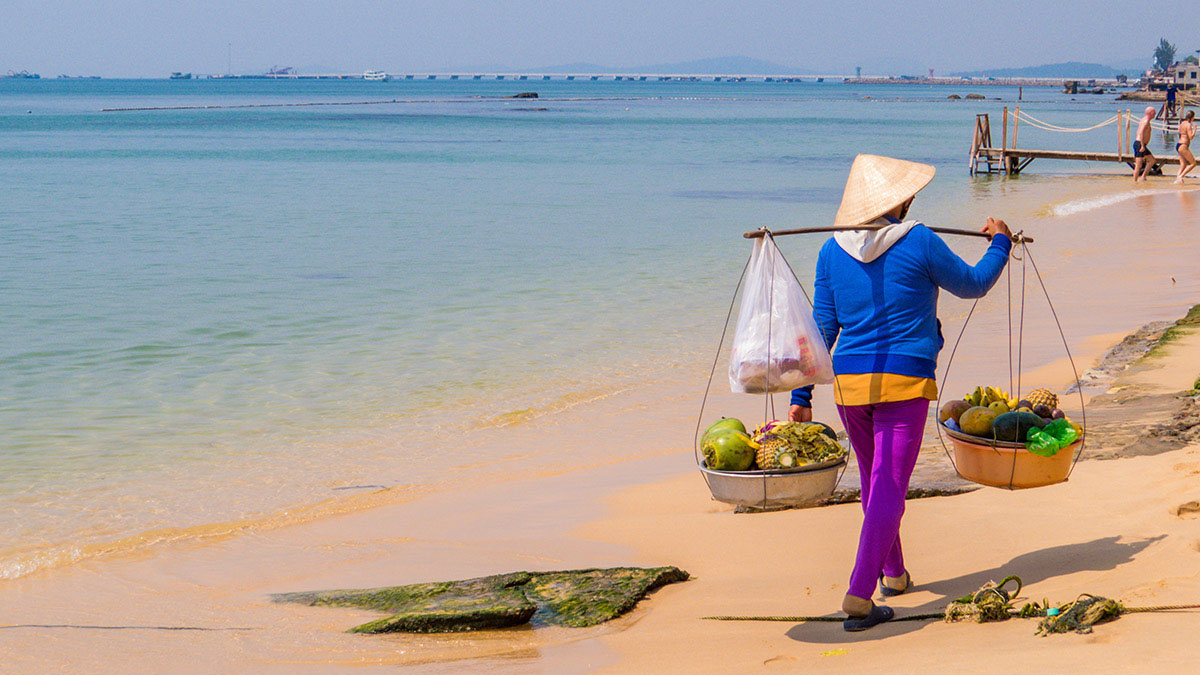Written by Dona Bertarelli, UNCTAD Special Adviser for the Blue Economy
A sustainable blue economy can support not just, SDG 14 – but also the Global Goals on poverty, hunger, jobs, gender equality, partnerships, resilient communities, and climate change. It drives economic growth and development, while supporting livelihoods and the health of the ocean.
I like to compare the challenges facing coastal and island communities, with those I face as a skipper. One must balance the need for results with the need to manage limited resources, keep your crew safe and your boat undamaged if you want to get home safely. To succeed in the ocean economy, it is the same. One must balance production and protection while providing long-term benefits to the community.
Through my work supporting the creation of marine protected areas, I have seen how reliant developing countries are on the ocean for food, transport, tourism and the flow of goods. This is especially true for small island developing states, or SIDS, which are critically impacted by the COVID-19 pandemic. Tourism supports over 60 percent of some island economies, so when tourism is disrupted, there is nothing left. On top of this, SIDS are heavily dependent on imported goods. Barbados, for example, imports 90 percent of its food.
Learning from this crisis, economies should diversify.
There is a growing interest from financial institutions and private businesses to invest in the innovation and technology needed to develop a healthy ocean economy. Add this to economic stimulus packages for post-COVID-19 recovery, and it is clear that we can make a resilient ocean economy a reality.
There are many promising sectors SIDS could explore, including financial instruments which support coastal and marine conservation, sustainable aquaculture, marine biotechnology, blue carbon, or clean offshore energy. These can attract private investments, encourage local sourcing, or produce goods higher up the value chain.
It is possible to support the SIDS to transition to more sustainable ocean economy sectors, by setting new standards for ocean protection and investing in the restoration of marine ecosystems – such as coral reefs, mangroves, and beaches – which in turn the tourism industry relies on.
Innovative financial instruments like blue bonds, debt-for-nature swaps, CSR investment, and blended financing - which combines development finance with philanthropic funds - are needed to finance this transition. For example, the Seychelles issued the world’s first sovereign blue bonds in 2018, and provides grants to projects which advance a sustainable blue economy.
Fisheries and aquaculture have huge potential, but deep changes are needed for these industries to become sustainable. Collaboration between government, communities, business and finance is crucial to developing high standards of transparency and traceability. The momentum is growing for companies to shift to become sustainable enterprises. This means addressing the entire value chain. For the fisheries industry, there cannot be sustainability unless there is traceability, which guarantees not only conservation outcomes, but also ensures human rights are respected.
UNCTAD’s Blue BioTrade initiative promotes trade and investment in marine resources, in line with social, economic and environmental criteria, and helps developing countries keep a greater share of the benefits. A pilot project is to come in the Caribbean, which aims to empower small-scale producers and develop sustainable, gender-inclusive businesses.
Developing a vibrant blue economy is feasible. Collaboration is the secret to success. Regional solutions exist, and when linked to global cooperation, it is a clear win-win, for the ocean, the economy, gender equality and social inclusion. But to move from commitment to action, governments and the private sector need clear incentives to take sustainability seriously.
Heads of state and CEOs need to provide much needed responsible leadership. That’s how we can catalyse change and have everyone contribute to advancing the 2030 Agenda.
Thank you very much.
Remarks delivered at the UN Global Compact SDG Business Forum 'The Ocean and the 2030 Agenda: the UN Ocean Conference as a key milestone’ on 23 September 2020.

